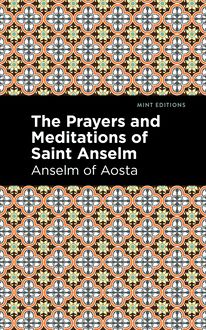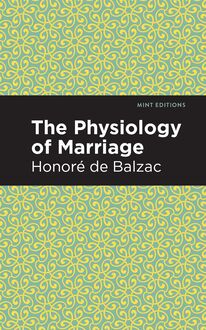-
 Univers
Univers
-
 Ebooks
Ebooks
-
 Livres audio
Livres audio
-
 Presse
Presse
-
 Podcasts
Podcasts
-
 BD
BD
-
 Documents
Documents
-
- Cours
- Révisions
- Ressources pédagogiques
- Sciences de l’éducation
- Manuels scolaires
- Langues
- Travaux de classe
- Annales de BEP
- Etudes supérieures
- Maternelle et primaire
- Fiches de lecture
- Orientation scolaire
- Méthodologie
- Corrigés de devoir
- Annales d’examens et concours
- Annales du bac
- Annales du brevet
- Rapports de stage
La lecture à portée de main
Vous pourrez modifier la taille du texte de cet ouvrage
Découvre YouScribe en t'inscrivant gratuitement
Je m'inscrisDécouvre YouScribe en t'inscrivant gratuitement
Je m'inscrisEn savoir plus
Vous pourrez modifier la taille du texte de cet ouvrage
En savoir plus

Description
Set in 19th century Massachusetts, Emanuel Bayard feels unsure about his studies at the local seminary. Though he is very devout to God, Emanuel feels he is called to do more for his community. However, some of the rules and leaders of the church are more conservative in their practices, disagreeing with Emanuel’s liberal and judgment-free approach. Among these people is the daughter of Emanuel’s theology professor, Helen. Yet, unlike others in the church, Helen accepts this difference, possibly persuaded by the attraction between she and Emanuel. After leaving the orthodox church, Emanuel begins to perform humanitarian acts inspired by the teachings and behavior of Jesus Christ. When these pursuits lead to the meeting of a local prostitute, Emanuel finds himself especially dedicated to her struggle. Magdalena, or Lena for short, is a beautiful woman and talented singer, forced to prostitution to make ends meet. She and Emanuel begin a friendship as he tries to help her find a better profession. Though Emanuel’s only intention is to better the community, improving one life at a time, not all are happy with Emanuel’s work, leading to conflict, surprising action, and an event that unsettles the whole town. First published one-hundred and twenty-five years ago in 1895, Elizabeth Stuart Phelps’ A Singular Life is a best-selling novel, offering a new perspective on the meaning of Christianity. With the use of religious philosophy, metaphor, and impactful prose, A Singular Life is a powerful narrative that promotes compassion and acceptance. While these elements encourage critical thought and provide insight, A Singular Life also entertains with its compelling drama, tender romance, and memorable characters. Invoking a whirlwind of emotion, A Singular Life challenges beliefs, offers immense comfort, and depicts characters that demand affection. This edition of A Singular Life by Elizabeth Stuart Phelps features an eye-catching new cover design and is presented in a font that is both modern and readable. With these accommodations, this edition is accessible and appealing to contemporary audiences, restoring A Singular Life to modern standards while preserving the original intelligence and impact of Elizabeth Stuart Phelps’ work.
Sujets
Informations
| Publié par | Mint Editions |
| Date de parution | 21 mai 2021 |
| Nombre de lectures | 1 |
| EAN13 | 9781513284958 |
| Langue | English |
| Poids de l'ouvrage | 2 Mo |
Informations légales : prix de location à la page 0,0500€. Cette information est donnée uniquement à titre indicatif conformément à la législation en vigueur.
Extrait
A Singular Life
Elizabeth Stuart Phelps
A Singular Life was first published in 1894.
This edition published by Mint Editions 2020.
ISBN 9781513279930 | E-ISBN 9781513284958
Published by Mint Editions®
minteditionbooks.com
Publishing Director: Jennifer Newens
Design & Production: Rachel Lopez Metzger
Project Manager: Micaela Clark
Typesetting: Westchester Publishing Services
C ONTENTS I II III IV V VI VII VIII IX X XI XII XIII XIV XV XVI XVII XVIII XIX XX XXI XXII XXIII XXIV XXV XXVI XXVII XXVIII XXIX XXX
I
T here were seven of them at the table that day, and they were talking about heredity. At least they were talking about whatever stood for heredity at the date of our history. The word had penetrated to religious circles at the time; but it was still interpreted with a free personal translation.
Perhaps there is no greater curiosity of its kind than that of a group of theological students (chiefly in their junior year) discussing science. It is not certain that the tendencies of the Seminary club dinner are not in themselves materialistic. The great law of denial belongs to the powerful forces of life, whether the case be one of coolish baked beans, or an unrequited affection. That the thing we have not is the thing we would have, neither you nor I nor the junior may deny; and it is quite probable that these young men set an undue value upon a game dinner and entrées , which was not without its reactionary effect upon their philosophy.
Jaynes, for instance, had been reading Huxley. Jaynes was a stout man, and short, with those round eyeglasses by which oculists delight in deforming round people. He confessed that he was impressed by the argument. He said:—
“Varieties arise, we do not know why; and if it should be probable that the majority of varieties have arisen in a spontaneous manner”—
“A little vinegar, Jaynes, if you please,” interrupted Tompkinton gently. Tompkinton was long and lean. His hair was thin, and scraggled about his ears, which were not small. His hands were thin. His clear blue eye had an absent look. In cold weather he wore an old army cape of his father’s. He studied much without a fire, for the club board at the “short price” cost him two dollars and seventy-five cents a week. His boots were old, and he had no gloves and a cough. He came from the State of New Hampshire.
Then there was Fenton: a snug little fellow, who took honors at Amherst; a man who never spent more than five hundred a year in his life, yet always wore clean linen and a tolerable coat, had a stylish cut to his hair, and went to Boston occasionally to a concert. It was even reported that he had been to see Booth. But the Faculty discredited the report. Besides, he had what was known as “a gift at prayer.”
Fenton was rather a popular man, and when he spoke in answer to Holt (who observed that he considered Huxley’s Descent of Man an infidel book) he was listened to with marked attention.
Holt was in the Special Course. He was a converted brakeman from the Hecla and St. Mary’s, a flourishing Western railway. Holt, being the only student present who had not received any undue measure of collegiate culture, was treated with marked courtesy by his more liberally educated fellow-students.
“We are reading Darwin up at my room, two or three of us, after dinner,” observed Fenton kindly. “We should be happy to have you join us sometimes, Holt.”
Holt blinked at the speaker with that uncertain motion of the eyelids which means half intellectual confusion, and half personal embarrassment. Not a man of these young Christians had smiled; yet the Special Course student, being no natural fool, vaguely perceived that something had gone wrong.
But Fenton was vivaciously discussing last November’s ball games with his vis-à-vis , a middler whose name is unknown to history. It was some time before he said, looking far down the long table:—
“Bayard, who is it that says it takes three generations to make a gentleman?”
“Why, Holmes, I suppose,” answered he who was addressed. “Who else would be likely to say it?”
“Any of the Avonsons might have said it,” observed a gentlemanly fellow from the extreme end of the table; he returned his spoon to his saucer as he spoke. There were several students at the club who did not drink with their spoons in their teacups, and even laid the knife and fork in parallels upon the plate, and this was one of the men. He had an effective and tenderly cherished mustache. He was, on the whole, a handsome man. It was thought that he would settle over a city parish.
“I doubt if there was ever an Avonson who could have said it, Bent,” replied Bayard. The Avonsons were a prominent New England family, not unknown to diplomacy and letters, nor even to Holt of the Hecla and St. Mary’s.
“But why, then?” persisted Bent.
“They have believed it too thoroughly and too long to say anything so fine.”
Bent raised an interrogative eyebrow.
“You won’t understand,” returned Bayard, smiling. All the fellows turned towards Bayard when he smiled; it was a habit they had. “You aren’t expected to. You are destined for the Episcopal Church.”
“I see the connection less than ever,” Bent maintained. “But I scent heresy somewhere. You are doomed to the stake, Bayard. That is clear as—as the Latin fathers. Have an apple,—do. It’s sour, but sound. It’s Baldwin year, or we shouldn’t get them except Sundays.”
Bayard mechanically took the apple, and laid it down untouched. His eye wandered up the cold length of the long table decorated with stone china. Somehow, few aspects of the theological life struck his imagination so typically as a big vegetable dish piled with cold, unrelieved Baldwins, to be served for after-dinner fruit on a winter day. In the kind of mental chill which the smallest of causes may throw over a nature like his, Bayard did not exert himself to reply to his classmate, but fell into one of the sudden silences for which he was marked.
“My father,” observed the New Hampshire man quietly, “was a farmer. He dug his own potatoes the day before he enlisted. Perhaps I am no judge, but I always thought he was a gentleman—when I was a little boy.”
Tompkinton shouldered himself out of the conversation, asked one of the fellows what hour the Professor had decided on for eternal punishment, and went out into the wintry air, taking long strides to the lecture-room, with his notebook under the old blue army cape, of which the northwest wind flung up the scarlet side.
“Has the Professor tea’d you yet, Bent?” asked Bayard, rousing, perhaps a little too obviously anxious to turn the channels of conversation. Genealogical problems at best, and in picked company, are unsafe topics; hence peculiarly dangerous at a club table of poor theologues, half of whom must, in the nature of things, be forcing their way into social conditions wholly unknown to their past. Bayard was quicker than the other men to think of such things.
“Oh yes,” said Bent, with a slightly twitching mustache. “Ten of us at a time in alphabetical order. I came the first night, being a B. Madam his wife and Mademoiselle his daughter were present, the only ladies against such a lot of us. I pitied them. But Miss Carruth seemed to pity us. She showed me her photograph book, and some Swiss pickle forks—carved. Then she asked me if I read Comte. And then her mother asked me how many of the class had received calls. Then the Professor told some stories about a Baptist minister. And so by and by we came away. It was an abandoned hour—for Cesarea. It was ten o’clock.”
“I was in town that night,” observed Bayard. “I had to send my regrets.”
“If you were in town, why couldn’t you go?” asked the middler.
“I mean that I was out of town. I was in Boston. I had gone home,” explained Bayard pleasantly.
“You won’t come in now till after the Z’s,” suggested Fenton quickly; “or else you’ll be left over till the postgraduates take turn, and the B’s come on again.”
The Baldwin apples were all eaten now, and the stone china was disappearing from the long table in detachments. Jaynes and the Special Course man had followed Tompkinton, and the middler and Bent now pushed back their chairs. Bayard remained a moment to ask after the landlady’s neuralgia,—he was one of the men who do not economize sympathy without more effort than its repression is usually worth,—and Fenton waited for him in the cold hall. The two young men shoved their shoulders into their overcoats sturdily, and walked across the Seminary green together to their rooms.
Strictly speaking, one should say the Seminary “white.” It was midwinter, and on top of Cesarea Hill. From the four corners of the earth the winds of heaven blew, and beat against that spot; to it the first snowflake flew, and on it the last blizzard fell. Were the winters longer and the summers hotter in Cesarea than in other places? So thought the theologues in the old draughty, shaking Seminary dormitories dignified by time and native talent with the name of “halls.”
Young Bayard trod the icy path to his own particular hall (Galilee was its name) with the chronic homesickness of a city-bred man forced through a New England country winter under circumstances which forbade him to find fault with it. His profession and his seminary were his own choice; he had never been conscious of wavering in it, or caught in grumbling about it, but sometimes he felt that if he had been brought up differently,—like Tompkinton, for instance, not to say Holt,—he should have expended less of that vitality necessary to any kind of success in the simple process of enduring the unfamiliar.
“How was the gale round your room last night?” inquired young Fenton, as the two climbed the frozen terraces, and leaped over the chains that hung between rows of stunted posts set at regular intervals in front of the Seminary buildings. For what purpose these stone dwarfs staggered there, no one but the founders of the institution kne
-
 Univers
Univers
-
 Ebooks
Ebooks
-
 Livres audio
Livres audio
-
 Presse
Presse
-
 Podcasts
Podcasts
-
 BD
BD
-
 Documents
Documents
-
Jeunesse
-
Littérature
-
Ressources professionnelles
-
Santé et bien-être
-
Savoirs
-
Education
-
Loisirs et hobbies
-
Art, musique et cinéma
-
Actualité et débat de société
-
Jeunesse
-
Littérature
-
Ressources professionnelles
-
Santé et bien-être
-
Savoirs
-
Education
-
Loisirs et hobbies
-
Art, musique et cinéma
-
Actualité et débat de société
-
Actualités
-
Lifestyle
-
Presse jeunesse
-
Presse professionnelle
-
Pratique
-
Presse sportive
-
Presse internationale
-
Culture & Médias
-
Action et Aventures
-
Science-fiction et Fantasy
-
Société
-
Jeunesse
-
Littérature
-
Ressources professionnelles
-
Santé et bien-être
-
Savoirs
-
Education
-
Loisirs et hobbies
-
Art, musique et cinéma
-
Actualité et débat de société
- Cours
- Révisions
- Ressources pédagogiques
- Sciences de l’éducation
- Manuels scolaires
- Langues
- Travaux de classe
- Annales de BEP
- Etudes supérieures
- Maternelle et primaire
- Fiches de lecture
- Orientation scolaire
- Méthodologie
- Corrigés de devoir
- Annales d’examens et concours
- Annales du bac
- Annales du brevet
- Rapports de stage




















